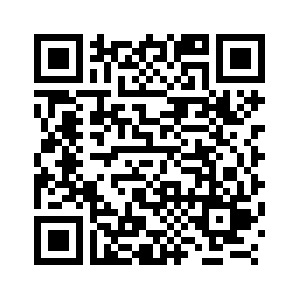Feature: Lebanon's All Girls Code initiative empowers young women to lead in tech
Source: Xinhua
Editor: huaxia
2025-10-23 19:56:45
BEIRUT, Oct. 23 (Xinhua) -- In a sunlit classroom in the Lebanese capital Beirut, Yara Noun talked about how an initiative changed the course of her studies. A first-year student at the American University of Beirut (AUB), she never expected coding to become central to her academic path.
"All Girls Code introduced me to computer science, which inspired me to major in communication and computer engineering," Noun said. Beyond technical skills, the program taught her public speaking, CV writing, and creative thinking, giving her the confidence to take on leadership roles and expand her network.
Noun is one of more than 2,500 girls across nine countries reached by All Girls Code, a Lebanese initiative founded in 2017 by Aya Mouallem and Maya Moussa. Run by volunteers, the program provides coding, technology, and leadership training, especially to underserved communities and refugees.
"The program gave me not only coding skills but also the ability to approach people confidently," Noun said. "Whenever I post about the program's events on social media, I see other women in my community inspired to learn and join."
This year, All Girls Code was recognized with the United Nations Educational, Scientific and Cultural Organization (UNESCO) Prize for Girls' and Women's Education, sharing the award with Kenya's Nashipai Maasai Community Projects.
Funded by the Chinese government, the prize awards 50,000 U.S. dollars to each laureate to help further their work in the area of girls' and women's education. Since its establishment in 2015, the prize has recognized 20 projects in 19 countries over the decade, highlighting programs that advance girls' education and leadership worldwide.
For Layan Jaber, also at the AUB, All Girls Code opened the door to technology and leadership. As a mentor in its flagship Techsplore program, she helps connect participants with experts in AI, data science, and technology.
"Through these sessions, I discovered my passion for tech and built a network that could open future career opportunities," Jaber said. The experience also strengthened her adaptability, resilience, and teamwork, skills she sees as essential for her studies in electrical and computer engineering.
Mariam Dandachli, a fifth-year medical student, highlighted the program's mentorship and community-building approach.
"All Girls Code doesn't only teach coding; it prepares girls to integrate into university life, develop soft skills, and work effectively in teams," she said. Leading teams and mentoring others helped Mariam build leadership skills while supporting girls pursuing STEM (Science, Technology, Engineering, and Mathematics) fields.
Across Lebanon and the Arab region, women are still underrepresented in STEM fields. According to UNESCO, women account for only 35 percent of STEM graduates.
"Having someone depend on you is a responsibility," she added. "It showed me that the work we do isn't just for one event but for helping someone build their future."
Describing the UNESCO recognition a milestone for the program, co-founder Moussa told Xinhua, "The award enables us to strengthen our curricula, both online and in-person, and ensures a sustainable path forward for empowering girls with STEM and leadership skills."
According to Moussa, the program builds a sense of community. "Alumni continue volunteering, mentoring new participants, and taking part in events that connect culture and technology... This growing network extends the impact of All Girls Code far beyond individual classrooms or workshops," she said.
Thanks to the UNESCO recognition, the support of China, and a growing community of alumni and volunteers, All Girls Code "is preparing young women to thrive in a digital world, take on leadership roles, and mentor the next generation," Moussa said, hoping that the program would create a lasting ripple effect across the region. ■



